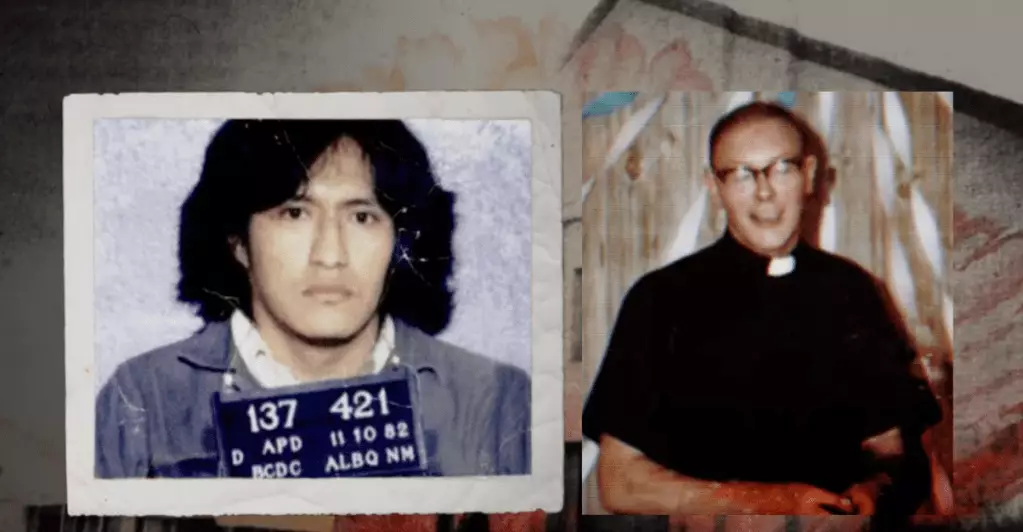In the shadows of an oil-rich town, the tragic story of Father Patrick Ryan uncovers the grim realities of a justice system that often fails to protect the innocent. In 1981, Ryan, a closeted gay Catholic priest, was found brutally murdered in an Odessa motel, his lifeless form bearing the marks of a violent struggle. The gruesome details of his death sent shockwaves through the community, ultimately leading to a harrowing miscarriage of justice that would haunt Texas for decades.
The investigation that followed was marred by bias and an eagerness to close the case rather than seek the truth. Authorities quickly zeroed in on James Harry Reyos, a closeted Apache man, as the primary suspect for reasons that reflected more of the town’s prejudices than any substantial evidence. Reyos, who was not even in the state on the night of the murder, had an alibi that was disregarded in favor of a convenient narrative that lined up with the local prejudices—homophobia and racism reigned supreme in this tragic saga of misjudgment.
Systemic Flaws and Racial Bias
Reyos’s case encapsulates a disturbing pattern of systemic flaws within the American judicial landscape. The rush to judgment not only cost him twenty years of his life in prison but also exposed the undercurrents of entrenched discrimination. As the documentary “Night in West Texas” reveals, Reyos was perceived as a “throwdown character,” someone whose identity could be conveniently scapegoated in a society that too often resorts to stereotypes. The horror of being a minority—both in terms of his ethnicity and sexual orientation—made Reyos the perfect target for a flawed system that continuously fails those who do not fit a particular mold.
The powerful narrative woven through this documentary elucidates the deep-seated issues with how law enforcement operates, particularly in areas where bias can distort the pursuit of justice. It serves as a stark reminder of the critical need for empathy and understanding, particularly in a landscape afflicted by prejudice. The film isn’t merely a recounting of events; it is a collective gasp for change, a plea for a justice system that considers the humanity of every individual it serves.
A Turning Point in the Fight for Justice
The story takes a dramatic turn with the appointment of Mike Gerke as the police chief in 2017. This shift was pivotal—allowing a fresh perspective on an old case that had become synonymous with injustice. Gerke’s efforts to revisit Reyos’s case, spurred by a true-crime podcast, illustrate a powerful truth: sometimes, it takes an outsider’s fresh eyes to uncover what was previously overlooked. The unprocessed fingerprints from the crime scene, an oversight that would have ensured Reyos’s freedom had they been addressed, signify the monumental lapses within a system so fixated on expediency that it neglects to uphold its duty to justice.
This re-examination of the case offers a glimmer of hope amid a pervasive landscape of despair. Reyos’s ongoing fight for innocence underscores a broader narrative centered around the Innocence Project and its tireless commitment to correcting judicial wrongs. This battle against the deep-seated issues of racial prejudice and systemic negligence is emblematic of larger societal struggles. It showcases the indispensable role that organizations like the Innocence Project play in illuminating the flaws within our judicial system, which often falter under the weight of discrimination.
The Cultural Importance of the Documentary
Esquenazi’s filmmaking deftly probes these intricate dimensions, exposing how even the most vulnerable among us can be failed by the system meant to protect them. With a history of examining LGBTQ+ injustices, her approach in “Night in West Texas” illuminates not only Reyos’s plight but also serves as a beacon for advocacy, pushing audiences to engage critically with narratives that have been silenced by systemic oppression.
The documentary transcends mere storytelling; it invites viewers into a harrowing journey that is at once educational and deeply emotional. It serves as a call to action—demanding that we confront our biases and recognize the humanity within those who are often demonized due to their identity. The unmasking of Reyos’s plight compels society to reflect on the structures that allow for such injustices to persist, reinforcing the notion that accountability must be integral to the process of enacting true justice.


Leave a Reply